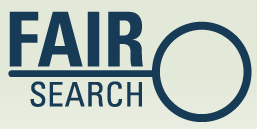Seeking To Pressure Regulators, FairSearch Announces New Members, Issues Missive Seeking “Meaningful” Remedies
If I were a betting person I’d say that the European Commission and FTC antitrust investigations against Google will wrap up without any major “structural” changes or dramatic new rules imposed on the company. Indeed there were premature reports that Google had already settled with the EU. An announcement of some sort is imminent I […]
 If I were a betting person I’d say that the European Commission and FTC antitrust investigations against Google will wrap up without any major “structural” changes or dramatic new rules imposed on the company. Indeed there were premature reports that Google had already settled with the EU. An announcement of some sort is imminent I suspect.
If I were a betting person I’d say that the European Commission and FTC antitrust investigations against Google will wrap up without any major “structural” changes or dramatic new rules imposed on the company. Indeed there were premature reports that Google had already settled with the EU. An announcement of some sort is imminent I suspect.
In the US a number of legal scholars (both independent and sponsored by Google) have come forward to argue that under the current antitrust framework Google would potentially win any case brought by the feds. In addition a new FTC nominee disfavors antitrust action against Google.
Beyond this, a now somewhat more competitive mobile landscape (i.e., Apple Maps, Kindle Fire-Bing) and the prospect of Facebook going into search give Google ammunition to argue that not only is the digital landscape more dynamic it’s increasingly competitive (depending on how you scope the market being discussed).
On the other side anti-Google lobbying group FairSearch is making “equitable” arguments and offering its own version of “we are the 99 percent,” announcing that it now has a global coalition of companies opposed to Google’s allegedly anticompetitive practices. Recently the company released the results of a survey that asserted the public is up in arms about Google too.
FairSearch is very concerned that Google will “get off lightly.” The organization issued a letter today warning against a limited “labeling” approach in addressing the “Google sending traffic to its own sites” complaint. FairSearch wants “meaningful” remedies from regulators.
Here’s an excerpt from the letter:
Google controls nearly 80% of all searches done in the U.S., and more than 90% of all searches in Europe. It has the unique ability to manipulate the marketplace and illegally thwart competition. Ending its abuses and restoring competition in online search is vital to ensuring continued economic growth, innovation and consumer choice.
We firmly believe this can be achieved through enforcement of existing laws.
The remedy to restore competition must be meaningful and enforceable. Simply requiring Google to accurately label its products, paid search results and advertisements will not undo the harm to competition that Google already has inflicted.
A limited “remedy” will not prevent Google from continuing its other exclusionary conduct, such as preferencing its own services or demoting the rankings of competitive sites. Rather, it would enable Google to retain the fruits of its unlawful conduct and would preserve Google’s dominance. In the end, placement matters far more than labeling.
Emphasis added.
Recently a private antitrust suit in Brazil concluded in Google’s favor. That case was a kind of dress rehearsal for similar potential actions and arguments in the EU and US. The Brazilian court didn’t lean heavily on Brazilian law but seemed to use generic legal principles to come to its decision in favor of Google.
The new FairSearch members announced today are Nokia, Oracle and the Allegro Group (Poland). Nokia, joins partner Microsoft as part of FairSearch and Oracle just concluded an unsuccessful patent and copyright case against Google. So there’s a bit of “bad blood” between the companies.
Finally, in announcing these new members FairSearch expands the scope of the claimed anticompetitive behavior by Google: “not just in Web services, but also in mobile, and any platform where Google abuses its dominant position.”
Contributing authors are invited to create content for Search Engine Land and are chosen for their expertise and contribution to the search community. Our contributors work under the oversight of the editorial staff and contributions are checked for quality and relevance to our readers. The opinions they express are their own.
Related stories